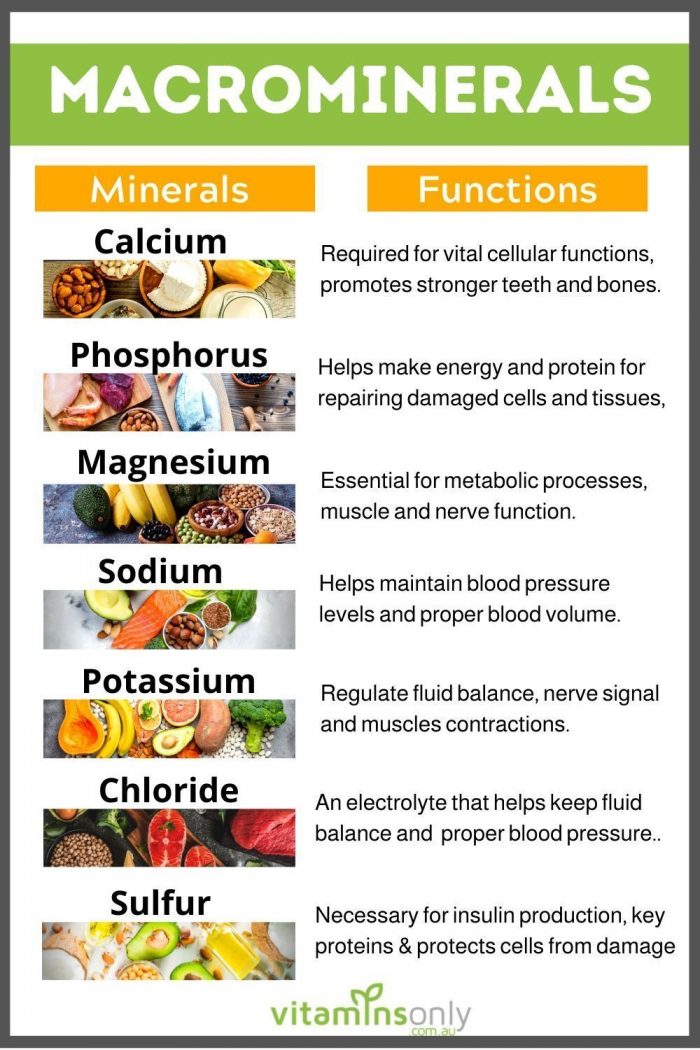
Macrominerals are minerals that are needed by your body in relatively large amounts. They include calcium, magnesium, phosphorus, sodium and potassium. Your body needs them to keep your bones strong and healthy, for example, or to help you digest food properly. Macrominerals also play a role in the function of many different organs throughout the body including your heart muscle and brain cells.
Calcium
Calcium is the most abundant mineral in your body. It’s needed for strong bones and teeth, nerve function and blood clotting. A lack of calcium can lead to osteoporosis (a disease that causes bones to become brittle). Calcium also helps form a protective layer around nerves, which helps transmit messages between your brain and other parts of your body.
Phosphorus
Phosphorus is another mineral that helps build bones. It’s also important for nerve function and blood clotting. Phosphorus can be found in dairy products, meat, fish, nuts and seeds.
Magnesium
Magnesium is a mineral that is essential for human health. Magnesium is needed for more than 300 biochemical reactions in the body. It helps maintain normal muscle and nerve function, heart rhythm, immune system function and bone health. Magnesium also plays an important role in energy production and protein metabolism.
Sodium
Sodium is necessary for transmission of nerve impulses, fluid balance, and muscle contractions. It’s also important in the absorption of nutrients from food into your body. In order to maintain a healthy level of sodium in your body you should:
- Avoid excessive use of salt and salty foods
- Drink plenty of water (at least 6 cups per day)
Potassium
Potassium is an electrolyte that helps control your blood pressure by regulating the passage of water across cell membranes in the heart and kidneys. It’s important for heart function, as well as kidney function. Potassium can be found in many foods like potatoes, bananas, and avocados.
Chloride
Chloride is a mineral and an ion. It’s found in blood plasma, sweat and tears. Chloride works with sodium to keep fluid levels balanced within cells, which allows your organs to work properly. Chloride is also an electrolyte – meaning it helps regulate blood pressure when there’s too much or too little salt (sodium chloride) in your body fluids. In fact, most of us need about 500 mg of chloride daily just for this purpose!
Sulfur
Sulfur helps form tendons and ligaments as well as bones, hair and nails. It also aids in digestion of foods containing protein as well as vitamin B12 absorption. Sulfur is an essential nutrient for the body to function properly. It is a component of all proteins; therefore if you have a deficiency in sulfur it may affect your ability to build muscle tissue or make new cells. Sulfur plays an important role in energy production by aiding the metabolism of fats and carbohydrates into glucose (blood sugar).
The Macrominerals are essential for good health and nutrition. They play an important role in building strong bones and teeth, regulating blood pressure, and helping your body process protein.
